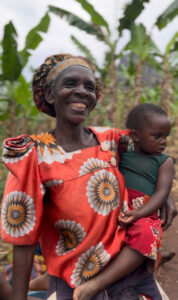How to Donate to Clean Water Projects in Africa

Access to clean water is a basic human right, yet millions of people in sub-Saharan Africa live without it. Every day, families walk miles for water that may not even be safe to drink. The effects ripple through health, education, and economic stability.
The good news? You can help change this. Whether you’re ready to sponsor a well or make a one-time donation, there are impactful ways to contribute to clean water projects in Africa. This article will walk you through how to give and why your donation matters.
Why Clean Water Projects Matter in Africa
Water scarcity in Africa isn’t just a geographic issue, it’s a human crisis. Millions of people lack access to basic drinking water.
Without clean water:
- Children are exposed to preventable diseases like cholera and typhoid
- Girls often miss school to fetch water for their families
- Communities struggle to grow food or maintain sanitation
Safe water can transform every aspect of life, from reducing illness and poverty to improving education and gender equality.
“We used to walk 4 hours each day to fetch water. Now we use that time to go to school.” – A student from Ethiopia whose village received a well through Water to Thrive
What Your Donation Can Do: The Impact of Giving
Every dollar makes a difference, and even small contributions go a long way. Here’s what different donation levels can achieve:
$10 Can Give a Person Clean Water for 20 Years
Through shared funding and local partnerships, this donation can cover the cost of a long-term clean water solution for one person.
$6,000 Can Build a Community Well
This amount can fund a well that serves an entire village, bringing life-saving water within steps of their homes.
Long-Term Change, Not Short-Term Aid
Your gift supports sustainable development. Water to Thrive builds relationships with local partners to ensure each well includes:
- WASH (Water, Sanitation, and Hygiene) training
- Community ownership
- Long-term maintenance planning
How to Donate to Clean Water Projects in Africa

There are several easy and impactful ways to give:
- Donate Online – Visit Water to Thrive’s donation page to make a secure, one-time or recurring gift
- Sponsor a Well – Fully fund a water project for a village in need. You’ll receive updates, photos, and GPS coordinates of your well
- Start a Fundraiser – Rally your community through birthday fundraisers, church events, or school projects
- Corporate & Matching Gifts – Double your impact by checking if your employer offers matching programs
- Legacy Giving – Add Water to Thrive to your will or estate plans for lasting impact
Ready to take the next step? Donate now or sponsor a well and transform a community.
Choosing the Right Clean Water Charity

Not all charities are created equal. Before you donate, ask these questions:
- Is the organization transparent about where donations go?
- Do they partner with local communities and experts?
- Do they track and report impact?
Water to Thrive meets the highest standards of accountability and effectiveness:
- 100% of designated donations go directly to water projects
- Local partnerships ensure cultural relevance and long-term success
- Donors receive detailed updates, including GPS coordinates and progress photos
Featured Stories: Lives Changed by Clean Water
Alemtshehay – Uganda
For years, Alemtshehay and her children walked over three hours each day to fetch water from a distant, unprotected source. The water was often contaminated—filled with leeches—and dangerous to consume. It made her children sick, caused livestock to die, and forced the family to spend what little they had on hospital visits.
The daily burden didn’t stop at health. Alemtshehay’s older children had to leave school to help carry water, sacrificing their education for survival.
Everything changed in 2012 when Water to Thrive donors funded a shallow borehole well in her village of Adi Watot.
Now, fetching water takes just minutes. Her younger children are back in school. The family’s medical costs have dropped. And for the first time in years, Alemtshehay sees a future full of possibility.
“However, thanks to this water source, my two younger daughters and youngest son can now focus on their education, because it takes just a few minutes to fetch water. Also, the medical expenses of my family have greatly decreased.”
You can explore more stories like these on our Impact page.
Call to Action: Help End the Water Crisis in Africa Today


